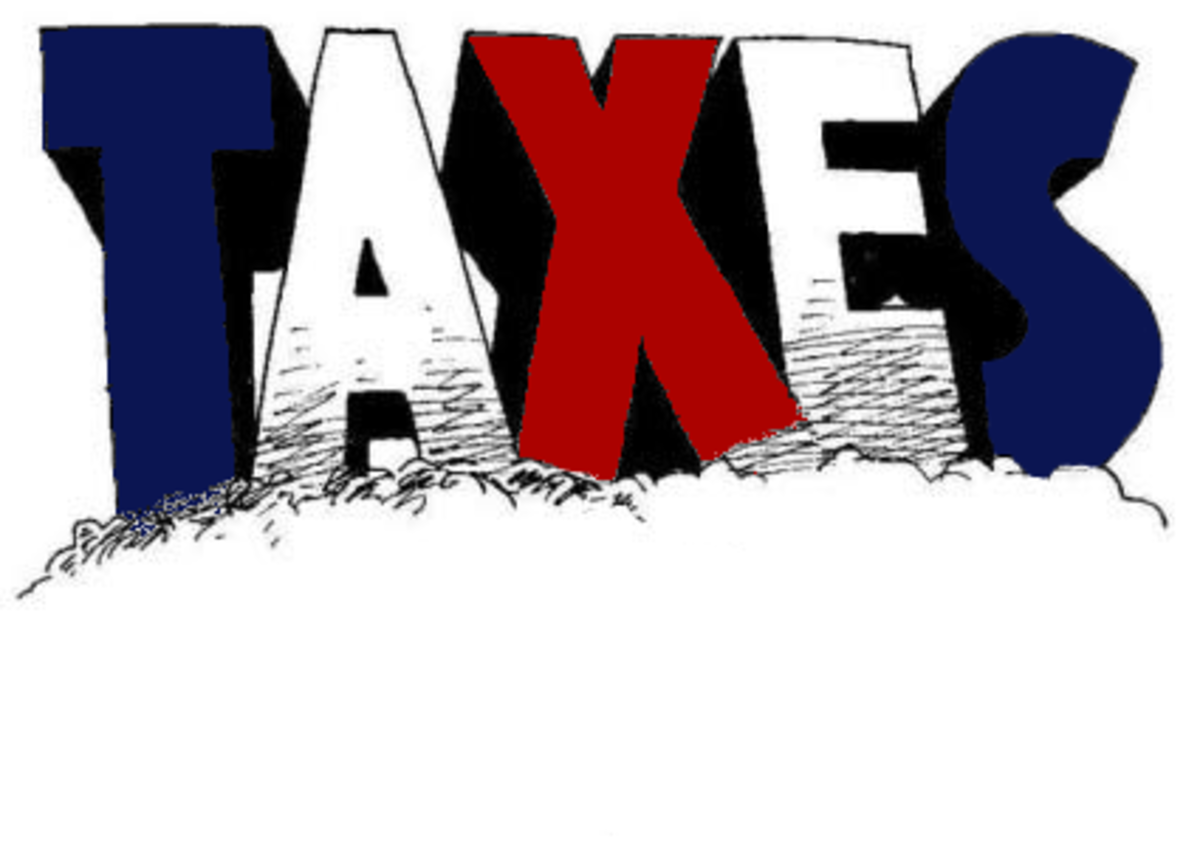- HubPages»
- Books, Literature, and Writing»
- Commercial & Creative Writing»
- Making Money as a Writer
Tax Deductions For Writers
“i Am Not a Crook”
My apologies to former President Nixon but I just couldn’t’ pass up the opportunity to use that line.
Come to think of it, I don’t apologize. He was a crook!
“The only difference between death and taxes is that death doesn't get worse every time Congress meets.”
Will Rogers
It is high time that we discussed that which might be a bit, shall we say, uncomfortable for many of you. Few people want to talk about taxes and for good reason: they are like a living nightmare that keeps happening every April. There is no avoiding them. There is, at best, a duck and cover attitude in hopes that the big one doesn’t blow and take us with it.
But discuss them we must and honestly, during this discussion, you just might find out a few things that will save you money this next year. Now I’ve got your attention, don’t I?
Let me begin by stating that I have no problem with the government collecting taxes. I understand the system and I’m fine with it in theory. I just want to make sure the playing field is level and I’m only paying my fair share in taxes and not a penny more.
When major corporations are allowed tax loopholes that save them hundreds of millions of dollars in taxes, I see no reason why I shouldn’t open up the tax books and take those same loopholes for a similar ride.
If you know very little about tax deductions for writers well then join the crowd. I would venture to guess that you have a lot of company, but in this case ignorance is not bliss. We really need to begin your education, and the first thing we need to do is define writing as an occupation.

The Writer in the Tax World
Believe it or not, intent is the main determining factor with regards to writing and taxes. You can either be a hobby writer or a full-time writer but you can’t be both.
A hobby writer is one who writes just for enjoyment and an occasional money-making venture. If this describes you, then you can only deduct expenses to the extent of your income. In other words, let’s say you make $2000 in writing income this year. Your expenses for that writing totaled $2200. You would only be able to use $2000 in expenses. You could not write off $2200 against other income.
A full-time writer is one who earns their entire income from writing, or one who is working towards becoming a full-time writer. In other words, you can have a full-time job working in a warehouse, but be working hard in your off hours at writing with the intent of being a full-time writer, and you can declare yourself a full-time writer. If this is the case then you can declare writing as an occupation by filing Schedule C and take deductions which will apply to all income that you make.
Believe it or not, this is the honor system between you and the IRS, but you better be able to back up your claims should an audit happen. If you show five or more years of losses from a business activity then you can count on meeting your local IRS agent up close and personal.
IRS Record Keeping document
- Recordkeeping
Internal Revenue Service guidelines on record keeping
So How Do You Prove It?
How do you prove something as nebulous as intent? The quick answer is that there is no easy, foolproof way, but there are some things you can do to help your cause.
- Keep business records
- Maintain a separate checking account for your writing business
- Attend writing classes, seminars and workshops and keep receipts
- Advertise and network
- Set up a writing website or blog
- Obtain a business license
- Give your writing business a name
- Write a business plan
- Of course, keep receipts
No, it is not necessary to do all of these, but the more you do the more you prove intent and move further away from the “hobby” label.
IRS Schedule C
The Nature of Deductions
So, what qualifies as a deduction for writers? Again we are dealing with IRS language. The Internal Revenue Service uses a guideline called “ordinary and necessary” when judging business expenses.
The question to ask yourself is this: would you incur that expense if you didn’t need it for your writing business? If the answer is no then you are in good shape when considering it a deduction.
Because these are such nebulous guidelines, what is a deduction for one business may not be for another. A subscription to People Magazine might be normal for a dentist’s office. The same subscription would be a stretch for your writing office….unless you can show that you use other magazines as a guide in your writing, to see the style of other writers and to see what certain magazines are looking for.
In other words, intent!


So, What Can Be Deducted?
First let’s talk about your home office. Do you have a home office?
You can deduct a home office expense if you use that space exclusively for writing and it is your principal place of business. Now I’m not going to tell you to cheat on this one, but it is a pretty shaky guideline that is very hard to disprove.
I am assuming that all writers have a particular place in their home where they write. If you have a separate room for writing then declare that your office. If you have a room that serves a dual purpose, like a writing office and a rec room, then declare that portion of the room used for writing as your office.
How do you do that?
Measure the area that is your office….let’s say it measures 10x10, which is 100 square feet. Now take the square footage of your entire house….say 2000 square feet….that means that 5% of your home expenses can be deducted for your writing business.
That percentage can be applied to rent or mortgage, property taxes, homeowner’s or renter’s insurance, utilities, repairs, maintenance and others. You can also write off the office furniture, so I’m talking about the twenty year old desk that you use and the chair that you sit on.
Did you learn anything useful from this article?
Useful ideas on deductions
Other Business Expenses
Travel, meals and entertainment. A word of warning about these three: the IRS has been burned before and they are on the lookout for anyone stretching the laws of probability with regards to travel, meals and entertainment.
If you think you can take your family out to dinner and write it off as a business expense, then you better be ready for the wrath of the IRS. If, however, you take someone who you are interviewing for an article to dinner, then write that puppy off as a legitimate expense. Just make sure you keep receipts and also keep the article as proof. Similarly, if you go to a writer’s conference in Topeka and spend money on airlines and hotels, keep all receipts, keep all information from the conference and cross-reference them as added proof.
Again, we are talking about clear business purpose and intent, and although those again are nebulous in nature, the IRS will come a’knockin’ if they think you left nebulous behind and entered the world of fantasy.
Capital Assets
Think computers, vehicles, cell phones and the like, and also remember that many of these items have dual-purposes that can overlap and cause problems. Do you only use a particular computer for writing and nothing else? If so, then the expense of that computer is a legitimate expense. Do you have a separate cell phone just for your writing business? Fantastic and no problem.
If you are deducting mileage for your writing business, as in a 100 mile drive to interview someone, then by all means deduct the mileage, but again, have it documented. Beginning odometer, ending odometer, keep it all in a business log with the purpose of each trip also mentioned. The IRS loves documentation, and the more you have the better your chances should you ever be audited.
So There You Have It
You have just received a crash course on a very difficult subject, but the basics are here for you to at least get started. You can always order online the IRS publications on business expenses, and if you are really into reading there are several good books that will go into much more detail. However, follow the general rule of intent and you will be in good shape should the IRS come calling.
2013 William D. Holland (aka billybuc)
“Helping writers to spread their wings and fly.”










